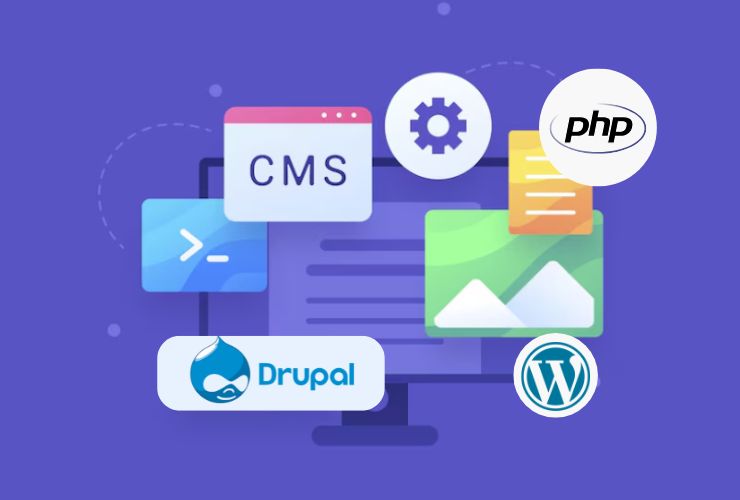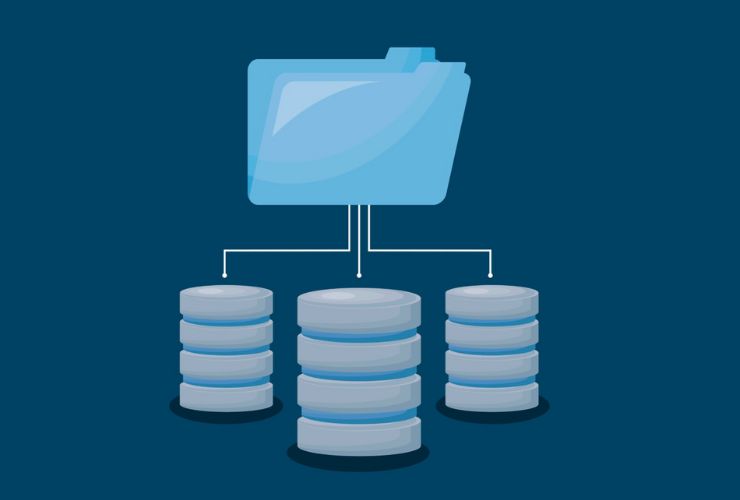In the world of web development, PHP stands tall as a powerful language that forms the backbone of many content management systems (CMS). Among these, WordPress and Drupal have emerged as two of the most popular platforms, each boasting unique features to cater to different user needs. So what makes them thrive in such a competitive landscape? This blog post explores the reasons behind their success and how PHP contributes to their robust capabilities.
Role of PHP in Content Management Systems
PHP is a server-side programming language that offers the ultimate flexibility, ease of use, and efficiency. Its adoption at such a huge scale, continues to power an incredibly large number of websites, making PHP perfect for the development of content management systems. Another two popular web solutions that fully exploit the power offered by PHP for their functioning are WordPress and Drupal. PHP is the one allowing smooth integration with databases, efficient data handling, and robust security measures, and because of this, it has become the backbone of these CMS platforms.
Besides, PHP makes it possible to have maximum customization in a way that both developers and users will be able to create a website according to a specific need. Themes, templates, and modules ensure that even for those with no technical background of any kind, both WordPress and Drupal deliver excellent user experiences.
Why WordPress Thrives
Easy-to-use Interface
WordPress is very friendly and accessible for both newbies and pros. Its intuitive dashboard lets users create and manage content without much hassle, allowing them to add posts, pages, and media without the need for advanced coding knowledge.
Huge Plugin Ecosystem
One of the biggest advantages that WordPress has over its competitors is the ecosystem that the plugins hold. Be it SEO, e-commerce, security, or even performance optimization, functionality can be added to their sites with only a few clicks. Some popular ones include Yoast SEO, WooCommerce, and Elementor, allowing its users to extend their website capabilities without any technical background.
Strong Community Support
WordPress is an active and busy community which consists of millions of users, developers, and contributors. This well-working global support network provides tutorials, step-by-step guides for troubleshooting, and updates towards keeping the platform secure and updated. Whatever your needs are in development or troubleshooting, the WordPress community will get back to you.
Features Friendliness
WordPress is built with best practices in mind for SEO. This makes it easy for the user to optimize their content so that it ranks well with search engines. Clean permalinks, mobile responsiveness, fast load times, and structured metadata come with the platform. SEO plugins also improve the search rankings of websites, making them attract more organic traffic.
Why Drupal Flourishes
Extremely Customizable
However, Drupal is famous for the flexibility and flexibility of customizations. Unlike WordPress, which is more appealing to newbies, Drupal is a friend to developers as it offers great tailoring possibilities. It is mainly used in enterprise-level applications, government portals, and other sites that have very complex functionalities.
High Security Level
With great security, this is one of the strongest aspects of Drupal that makes it most preferred by institutions dealing with confidential data. Websites are protected because Drupal has an in-house team of security to update and patch frequently. As a result, government agencies, financial institutions, and large corporate organizations prefer to use Drupal.
Content organization is also where Drupal shines, having a robust taxonomy system. This makes it possible with multiple content types, custom fields, and flexible workflows. Therefore, making it ideal for large-scale websites that require advanced structuring of content.
Multilingual Capabilities
Drupal has native multilingual functionality, hence companies and organizations can have their websites that can be read by people all over the world. Unlike WordPress, that uses a language translation plugin as it does not have its capability, Drupal offers native multilingual support making it the first choice for international projects.
WordPress vs. Drupal
While WordPress and Drupal are wonderful tools, which one to choose depends strictly on the project’s requirements.
WordPress is more suitable for small to medium-sized businesses, bloggers, and start-ups who would like to gain an easy-to-use, SEO-friendly, and cost-effective solution.
Drupal suits best an enterprise, government organization, or a developer who needs a secure, customizable, and scalable platform for complex projects.
Whether it is a case above, PHP powers the core of both CMS platforms, thereby providing the capability of offering robust, scalable, and safe web solutions.
Conclusion
With a large share for the top content management systems, PHP assisted both WordPress and Drupal. Meanwhile, WordPress represents the leader of the easy-to-use and flexible systems running extremely large for the plugin ecosystem. On the other hand, Drupal is well known for security, customizations, and much more developed content management. The knowledge of these strengths would allow businesses and developers to make appropriate decisions as to which CMS suits their needs best.













 Database Development
Database Development












































